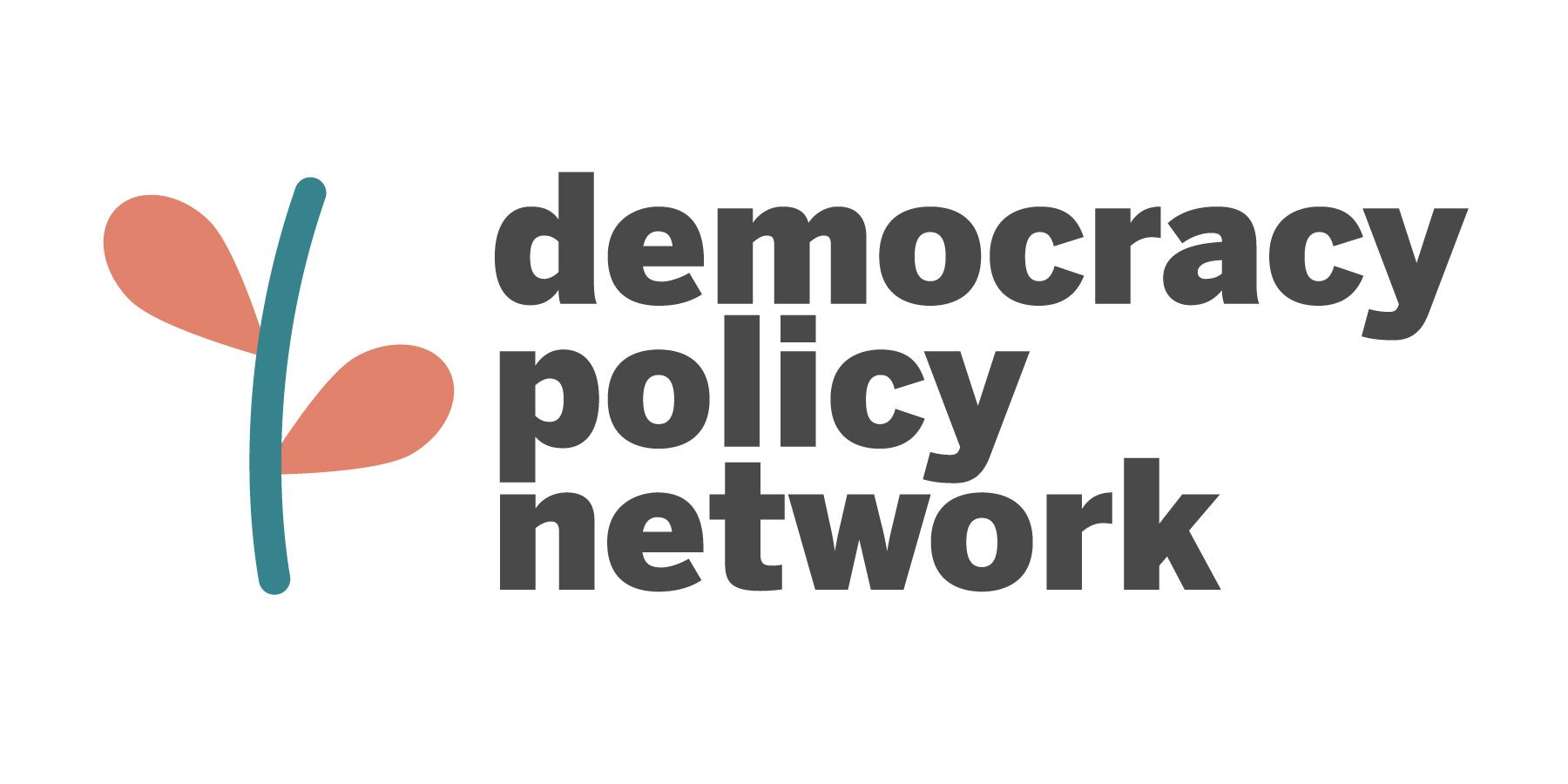Deepening Democracy in the States: A Year in Review
2021 was a big year for the Democracy Policy Network. Let's keep up the momentum in 2022! (Plus: a DPN Deck of Cards you don't want to miss out on!)

Hello friends,
The Democracy Policy Network began with the convergence of two simple ideas — one practical and one dreamy:
- Practical: There is a wave of democratically-spirited, policy-minded state politicians rising up in statehouses across the country. But they are understaffed — and need policy backup.
- Dreamy: The path forward in American politics is to deepen democracy: to expand more power to more people in more ways. But saying so is not enough to make it so — this vision can only be advanced through a flurry of concrete, piecemeal reforms.
Though we have been playing around with these ideas for years, this past year was the first time we were able to fully bring them together with the full launch of DPN, our interstate policy network for raising up ideas for deepening democracy. And our two hunches — (1) that state policy leaders would find an interstate network useful; and (2) fleshing out a democratic vision through practical policies is powerful — turned out to be true.
DPN’s Greatest Hits of 2021
Here’s a review of what we have been up to this past year:
In late February, after a year of experimentation, we publicly launched. This came with the launch of our statehouse leader network, our patreon, an interview on Current Affairs, and our launch video, which is a good two-minute explainer of what DPN does:
This year, DPN published five policy kits:
Our Legal Aid for All policy kit, organized by Scott Zimmerman and James Bagley, is about how states can build infrastructure to make our civil legal system more inclusive, equitable, and just by expanding the civil right to counsel, establishing Local Library Legal Offices, and widening the pathways to becoming a legal services provider. View the kit here and read Scott and James’s announcement of the kit here.
Our Alternative Voting Methods policy kit, organized by Renata Shammo, is about how states can implement alternatives to first-past-the-post plurality voting — such as ranked choice, approval, score, and STAR voting, as well as multi-member districts — to better translate public will into electoral outcomes. View the kit here and read Renata’s announcement of the kit here.
Our Public Payments Platforms policy kit, organized by Michael Brennan and Tom Latkowski, is about how states can establish publicly-owned digital wallets to make public administration more efficient, increase financial inclusion, benefit local economies, and build a foundation for more transformative uses of public money. View the kit here and read Michael and Tom’s announcement of the kit here.
Our Youth Decarceration policy kit, organized by Hana Karanja, is about how states can raise the age of incarceration and promote restorative justice alternatives for young people. View the kit here and read Hana’s announcement of the kit here.
Our Restorative Justice policy kit, organized by Nketiah Berko, is about how states can establish a statutory right to restorative justice processes — and promote the development, cultivation, and expansion of restorative justice programs. View the kit here and read Nketiah’s announcement of the kit here.
Additionally, DPN policy organizer Mark Histed sketched out his upcoming kit on Citizen News Vouchers in a blog post.
In August, we published our first book: Democracy Vouchers: How bringing money into politics can drive money out of politics by DPN policy organizer Tom Latkowski (with a foreword by Harvard Law professor Lawrence Lessig). Get your copy at DemocracyVouchers.org.

In July, we partnered with Run for Something Action Fund to host Statehouse Futures, a virtual policy and strategy summit for state leaders working to deepen democracy in statehouses across America. 290 statehouse leaders, staffers and advocates representing 31 states joined dozens of legislators and wonks to discuss six bold state policy ideas (from public banks to social housing to green buildings) and four strategies for change (from campaign cooperatives to merging racial and economic justice to progressive caucuses).

Throughout the year, we have hosted a series of video briefings for statehouse leaders on issues ranging from civil lawyers for all to public payments platforms to public advocate offices. For democracy dollars and social housing, we also launched a new model for us — working groups, in which we bring together state leaders and policy experts in multiple sessions to flesh out how they can champion an idea in the coming year.
The first DPN-inspired legislation was submitted in Maryland this year: to establish a publicly-elected, statewide Public Advocate who would serve as an independent liaison between Maryland citizens and the Maryland state government, and whose office would be tasked with and empowered for: (i) watchdogging the state government in the spirit of the public interest; (ii) receiving, responding, and acting on citizen complaints about state government; (iii) facilitating democratic engagement in state government; and (iv) advocating for constructive, systemic solutions to patterns seen in citizen complaints.
We received our first policy grant, from Schmidt Futures, to compile three policy kits about ways states can democratize entrepreneurship — and hired our first policy fellow, Nourel-Hoda Eidy, to explore how states can democratize technology, capital, and know-how to small- and medium-sized enterprises (including cooperatives).
We also launched a podcast — This is What Democracy Looks Like — in which I bring on experts and advocates working to deepen democracy.
Help keep up the momentum in 2022 — and get the first ever deepening democracy deck of cards
We want to keep up this momentum going into 2022. As Congress slows, it is that much more important to foster a vision for a deeper democracy in the states. In the new year, we will be relentlessly focused on three areas:
- Policy kits: Producing more kits, at a quicker pace—including kits in the works on themes ranging from antimonopoly policy to community land trusts to state citizenship powers for non-citizens to citizen news vouchers.
- Briefings & working groups: Continuing to innovate on briefing and working group models as we figure out the most effective ways to get promising policy ideas in front of state leaders and championed in statehouses.
- Democratic vision: Evangelizing our vision of a deeper American democracy— where freedom is seen not just as liberty but also as participation in power; where everyone has a voice in the forces that govern their lives; where we all are secured, equipped, and empowered to co-create our shared world.
We need all the help we can get to advance this mission. To finish off the year strong, we are aiming to hit $1,000 in monthly donations from 200 patrons. This will provide a good foundation for paying the publishing and creative cost of one new kit per month. Currently we are 25% of the way there. We hope you can help:
To sweeten the deal, we are going to be sending every donor in the coming month a very special New Year’s gift. We are excited to introduce to you the This is What Democracy Looks Like Playing Card Set:


This union-printed deck of cards consists of 52 promising policies for deepening democracy:

Do you have a cynic in your life that asks: “Nice vision, but how does it work in practice?” Do you have a nihilist in your life that insists that “there is no alternative”? With the This is What Democracy Looks Like Playing Card Set, you can challenge them to a game of 52 Pickup to show them all the democratic possibilities—or play a round of Go Fish…for promising policy ideas.


Get your deck by donating today:
Thank you for your continued support — and best wishes in the New Year.
Onward to a deeper democracy,
Pete Davis
Director, Democracy Policy Network

